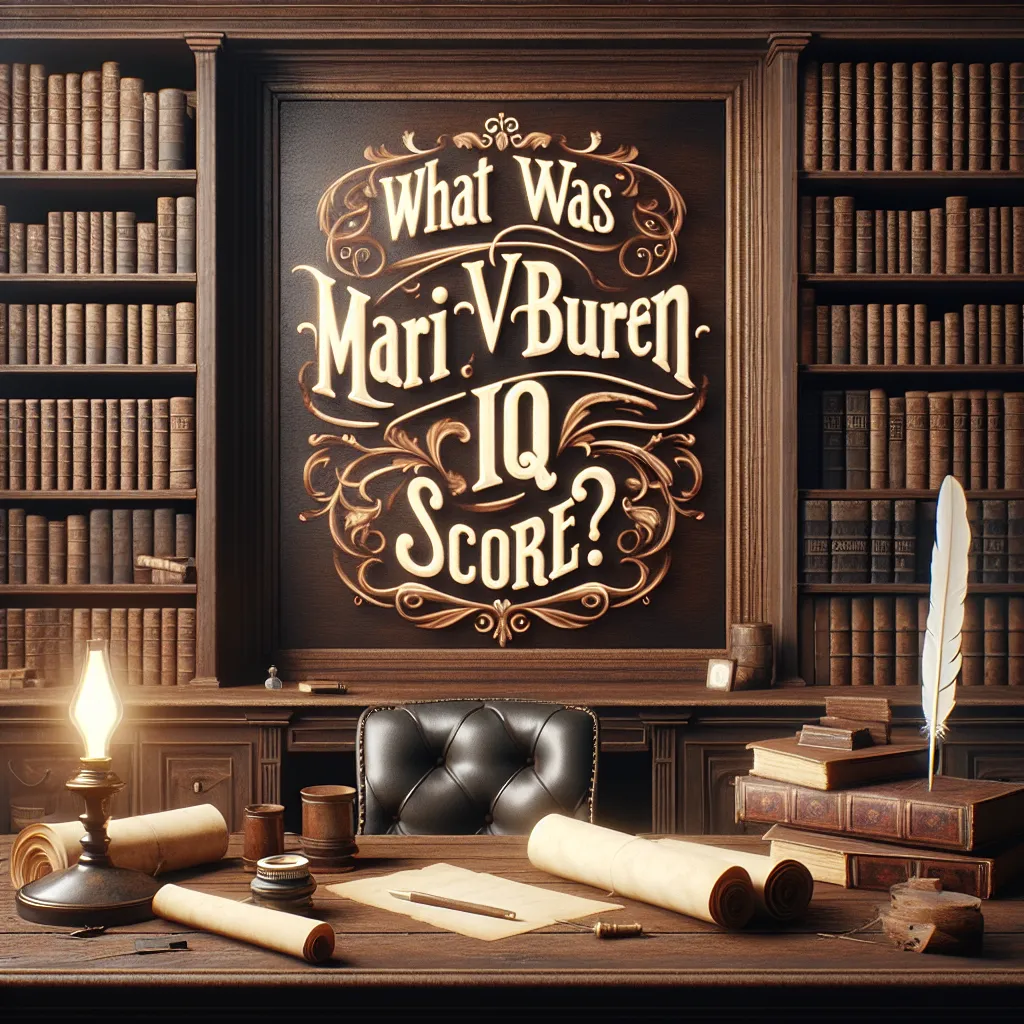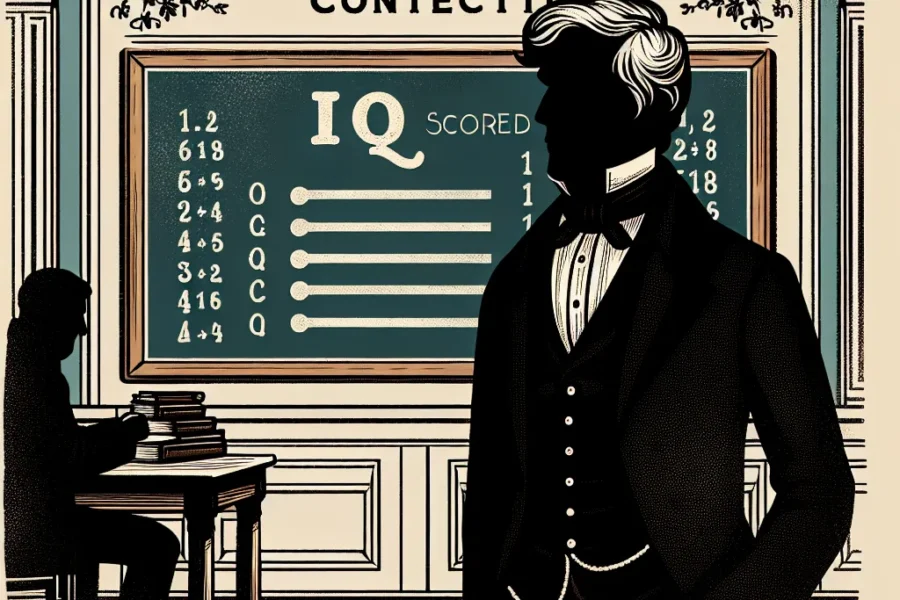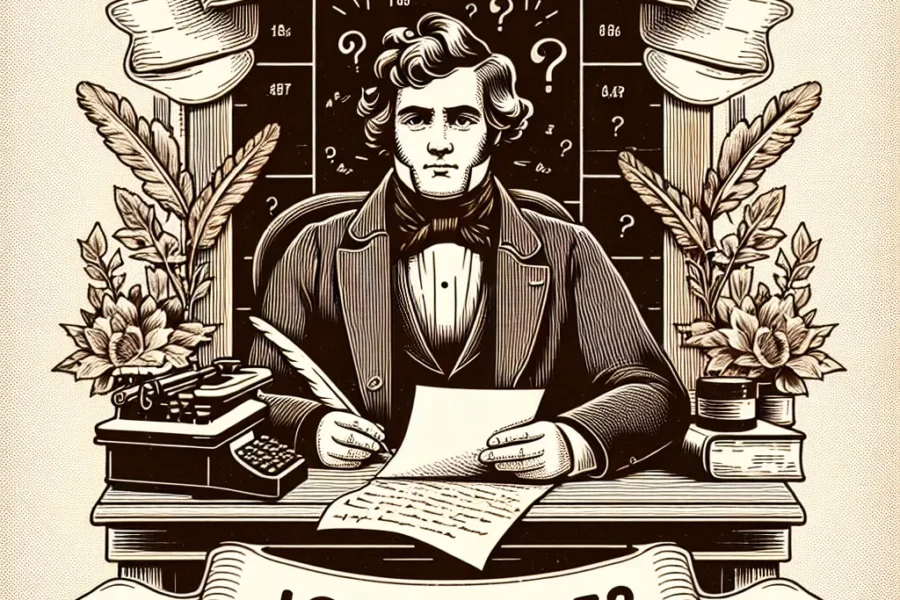Martin Van Buren, the eighth President of the United States, remains an enigmatic figure in American history. Born on December 5, 1782, in Kinderhook, New York, Van Buren was the first president to be born a U.S. citizen, as all his predecessors were born before the American Revolution. A key architect of the Democratic Party, Van Buren served as vice president under Andrew Jackson before ascending to the presidency himself from 1837 to 1841. While he undoubtedly played an influential role in the political landscape of his time, one intriguing question that often arises is: What was Martin Van Buren’s IQ score?
If you are looking for legitimate IQ Tests which pass the entry bar for Mensa, see our [IQ Tests](https://cognitivemetrics.co).
Unfortunately, there is no definitive answer to what Martin Van Buren’s IQ score was, primarily because IQ testing as we know it today did not exist during his lifetime. The concept of IQ, or Intelligence Quotient, emerged in the early 20th century, long after Van Buren had passed away. While it is impossible to assign an accurate numerical IQ score to Van Buren, we can certainly discuss aspects of his intellect, achievements, and capabilities that could provide some context.
Throughout his life, Martin Van Buren demonstrated a keen intellect and political acumen. His early education was somewhat limited, as he attended local schools and briefly studied Latin at the Kinderhook Academy. However, Van Buren’s sharp mind quickly became evident in his legal career. He apprenticed at a law firm and was admitted to the New York Bar in 1803 at the age of 20. Given the rigorous standards of the time, this achievement alone suggested that Van Buren possessed a high degree of intelligence and capability.
Van Buren’s legal career flourished, and he soon entered politics. He served in the New York State Senate, where he distinguished himself as a skilled debater and an advocate for Jeffersonian principles. His political philosophy favored limited government, states’ rights, and a strict interpretation of the Constitution. These beliefs aligned him closely with what would eventually become the Democratic Party.
One of Van Buren’s notable accomplishments was his role in the creation of the modern Democratic Party. He was a key architect of the party’s framework, working diligently to organize and unify different factions under the banner of Jacksonian Democracy. His efforts culminated in the successful election of Andrew Jackson as president in 1828, with Van Buren serving as Jackson’s vice president during his second term. This accomplishment demonstrated Van Buren’s profound understanding of political strategy, organizational skills, and his ability to navigate the complex landscape of early 19th-century American politics.
Despite his numerous political achievements, Martin Van Buren’s presidency is often regarded as somewhat lackluster. He faced significant challenges, including the Panic of 1837, a severe economic depression that plagued his administration. While Van Buren’s response to the crisis was cautious and focused on maintaining fiscal responsibility, his policies were not universally popular. Some of his critics viewed his approach as insufficient to address the economic turmoil.
However, it is essential to recognize that Van Buren’s intelligence and acumen were not necessarily tied to the outcomes of his presidency. Political success can be influenced by a myriad of factors beyond an individual’s control, including economic conditions, global events, and political opposition. Van Buren’s intelligence shone through in his ability to navigate the complexities of his time and make reasoned, calculated decisions based on his principles.
In addition to his political career, Van Buren was a skilled writer and communicator. His letters and speeches provide valuable insights into his thought processes and demonstrate his command of language and eloquence. His ability to articulate complex ideas and convey them effectively to both political allies and opponents was a testament to his intellectual prowess.
It is worth noting that assessing a historical figure’s intelligence based on contemporary standards can be challenging. The concept of IQ, as we understand it today, involves various cognitive abilities, including logical reasoning, problem-solving, and verbal proficiency. While historical records provide evidence of Van Buren’s abilities in these areas, they do not offer a comprehensive measure of his overall intelligence.
Moreover, intelligence is a multifaceted trait that goes beyond standardized testing. Van Buren’s strengths encompassed political strategy, legal expertise, and effective communication. His legacy should not be reduced to a single numerical value but rather appreciated for the breadth of his contributions to American history.
In conclusion, Martin Van Buren’s IQ score remains an unanswerable question, as the concept of IQ testing did not exist during his lifetime. However, his achievements in law, politics, and organization of the Democratic Party reflect a keen intellect and exceptional abilities. Van Buren’s legacy should be viewed through the lens of his significant contributions to American governance and political discourse rather than a numerical score that was never recorded. As we explore the lives of historical figures, it is essential to consider the context of their times and the diverse facets of their intelligence and accomplishments.



Leave a Comment